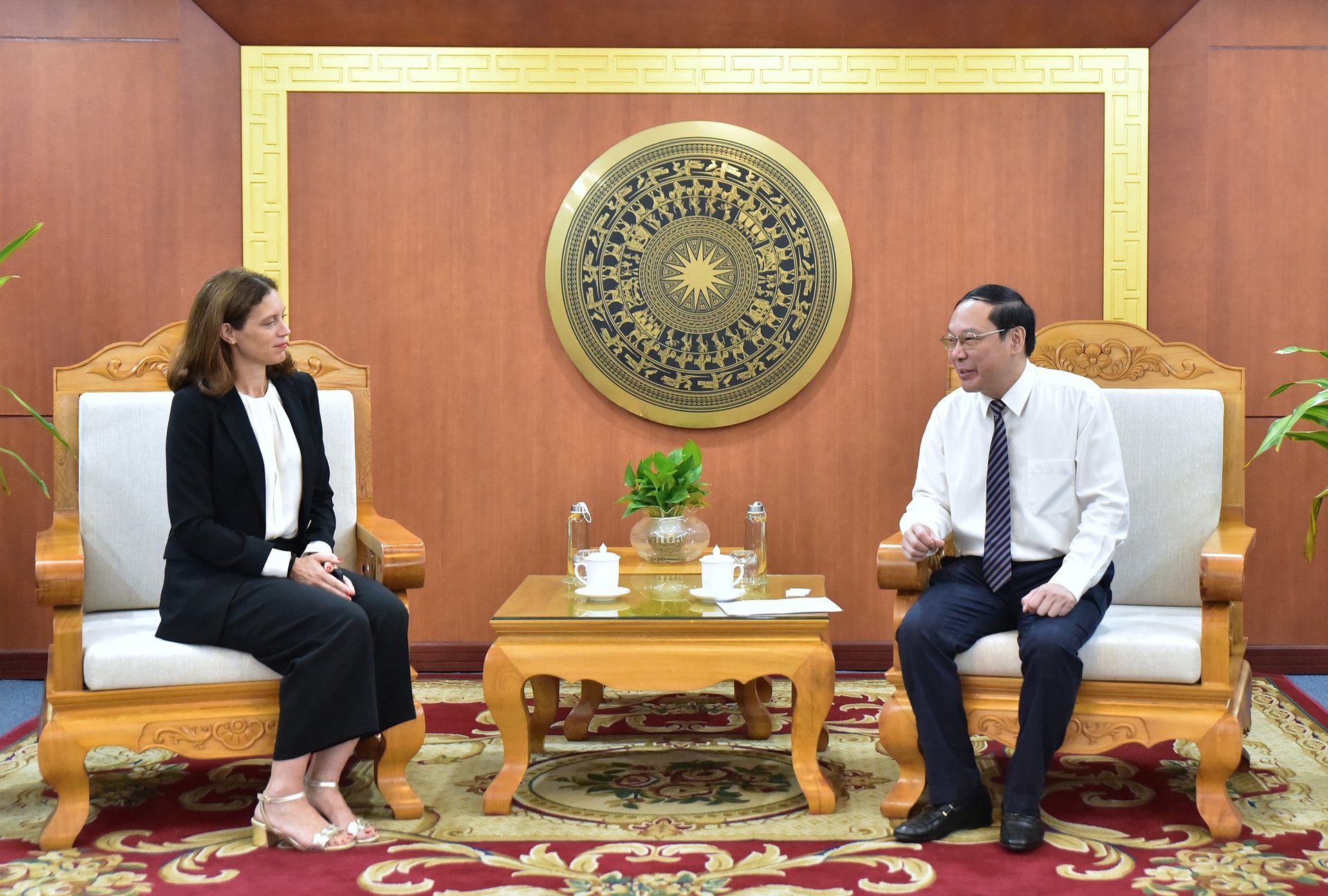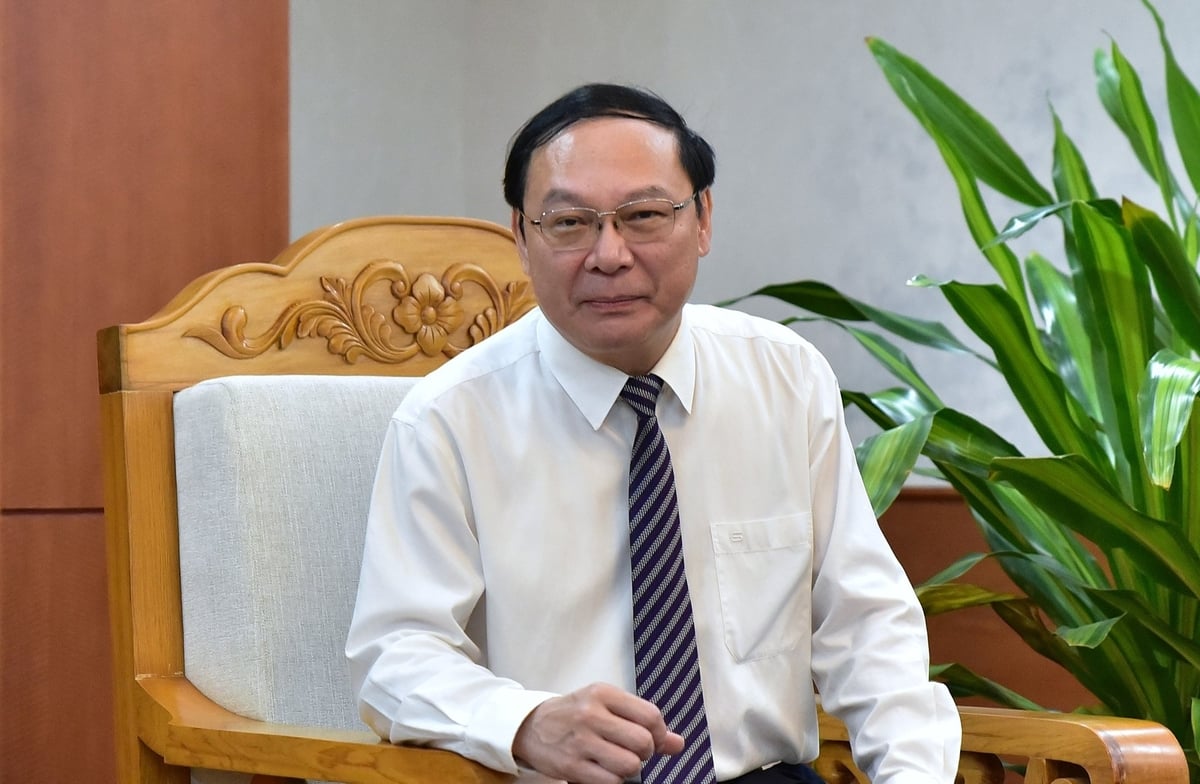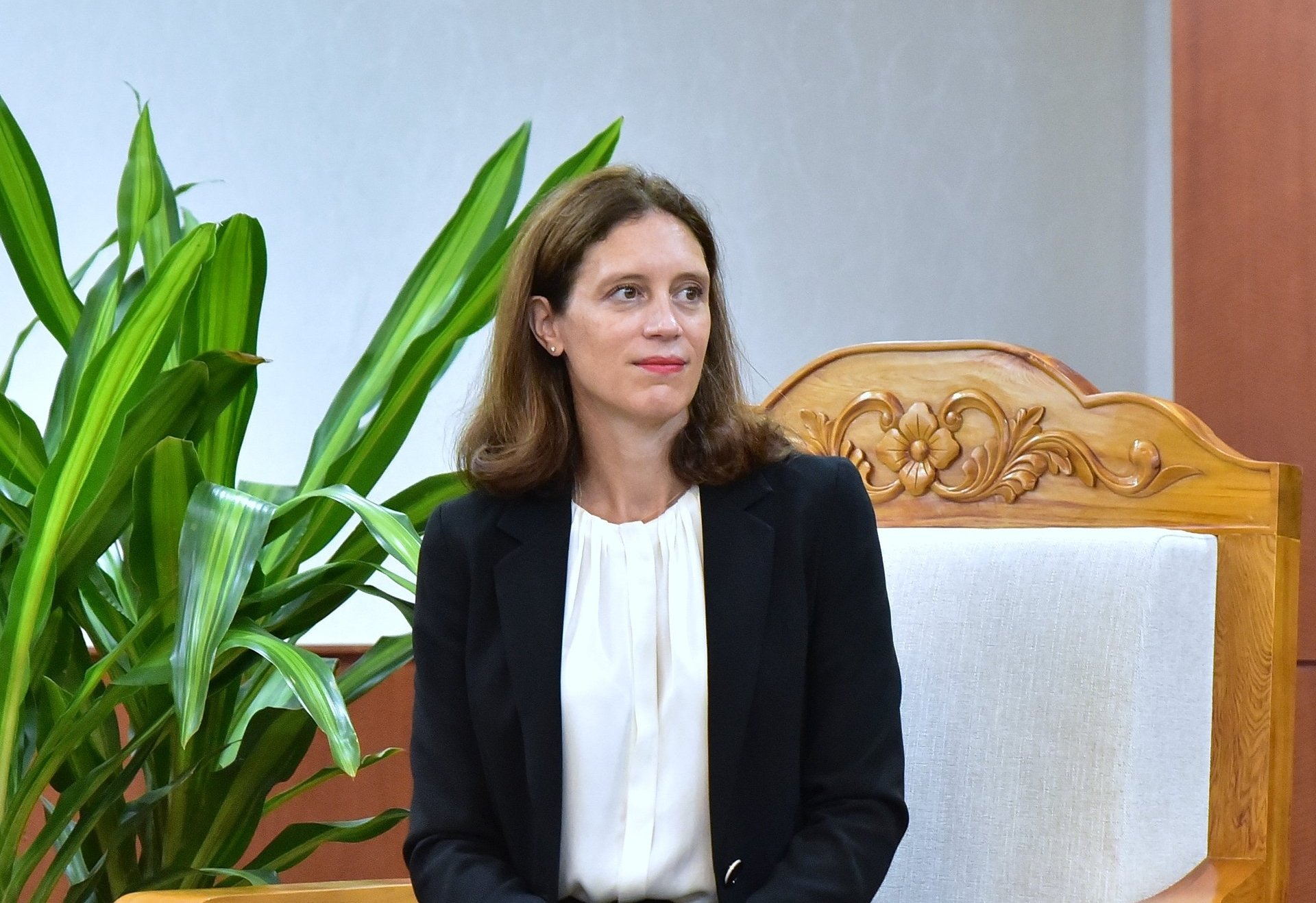December 5, 2025 | 14:23 GMT +7
December 5, 2025 | 14:23 GMT +7
Hotline: 0913.378.918
December 5, 2025 | 14:23 GMT +7
Hotline: 0913.378.918

Deputy Minister of Agriculture and Environment Le Cong Thanh receives Ms. Clemence Schmid, Program Director of the Global Plastic Action Partnership. Photo: Kieu Chi.
On July 11, Mrs. Clemence Schmid, Director of the Global Plastic Action Partnership (GPAP) under the World Economic Forum, visited and worked with the Ministry of Agriculture and Environment.
At the meeting, Deputy Minister Le Cong Thanh acknowledged the five-year milestones of Vietnam’s National Plastic Action Partnership (NPAP) in its efforts to address plastic pollution.
According to the Deputy Minister, the Vietnamese Government is currently implementing various policies to upgrade the collection, sorting, and treatment systems for plastic waste. At the same time, it actively participates in international negotiations on plastic waste and studies policies to promote a circular economy in this area.
New policies are being developed to enhance Extended Producer Responsibility (EPR), encourage innovation in recycling, and promote the use of bio-based materials as alternatives to traditional plastics. These actions aim not only to improve the domestic environmental quality but also to meet stringent international standards, thereby enabling Vietnamese goods to access major markets such as Europe and North America.
MAE leader also expressed hope that, through the connections and introductions of the World Economic Forum, Vietnam would have the opportunity to learn from other countries’ experiences and thus contribute proactively and effectively to global efforts in reducing plastic pollution.

Deputy Minister Le Cong Thanh highly appreciated the positive outcomes of NPAP in Vietnam. Photo: Kieu Chi.
According to Mrs. Clemence Schmid, GPAP has implemented the NPAP program in 25 countries, among which Vietnam stands out for its level of commitment and concrete actions. “We hope that GPAP will become a model of effective collaboration, not only within the region but also on a global scale. The upcoming NPAP financial roadmap will focus on supporting Vietnam’s green transition, addressing all pollution sources comprehensively, from plastic waste to greenhouse gas and methane emissions,” she shared.
She also emphasized the importance of building a sustainable financial ecosystem, which requires mobilizing resources from the private sector and green investment funds. This will be a key factor in ensuring the sustainability and scalability of plastic reduction initiatives in Vietnam.
At the meeting of the NPAP Vietnam Working Group held on July 9-10, the Technical Policy Group was officially established to help build the necessary legal foundations for long-term and systemic change. Previously, in 2023, NPAP Vietnam launched its first two technical groups: the Innovation and Finance Group and the Gender Equality and Social Inclusion Group.
The formation of the Technical Policy Group will promote specific measures to reduce plastic pollution, especially solutions for sorting, reusing, and recycling plastic waste from the collection stage. This will help create a transparent and consistent legal framework between central and local levels, thereby facilitating the participation of businesses and citizens in a sustainable plastic value chain.

Mrs. Clemence Schmid, GPAP Director, affirmed her commitment to working with Vietnam toward achieving green transition goals. Photo: Kieu Chi.
Mr. Clemence Schmid noted that NPAP Vietnam’s activities are expected to directly contribute to the goal of reducing ocean plastic waste by 75% and completely eliminating single-use plastics in coastal areas by 2030.
She also emphasized that close collaboration between the public and private sectors is a prerequisite for achieving these ambitious goals. Active participation from businesses, particularly major corporations in the food, consumer goods, and logistics sectors, will help scale up the impact of these initiatives from the community level to the national level.
The meeting marked a five-year journey of environmental action by a multi-stakeholder platform led by Vietnam. It opened new prospects for strategic global cooperation in combating plastic pollution and developing a circular economy. It reaffirmed Vietnam’s leadership role and spirit of multilateral coordination.
In the future, NPAP Vietnam is expected to expand cooperation into related areas such as sustainable tourism, ecological agriculture, and environmental education. These strategic directions aim to ensure the long-term spread of the values that NPAP is cultivating in its journey toward greening the economy.
NPAP Vietnam was established in 2020 as part of the collaboration between the World Economic Forum and the Ministry of Natural Resources and Environment (now the Ministry of Agriculture and Environment). From a new initiative, NPAP has quickly become an effective multi-stakeholder platform, bringing together over 200 organizations from various sectors, including government agencies, businesses, researchers, and international development organizations. Notably, this partnership was further strengthened by the signing of a Memorandum of Understanding (MoU) between the World Economic Forum and the Ministry at the COP28 Conference at the end of 2023.
Translated by Huong Giang

(VAN) As of 2025, the ASEAN region has a total of 69 ASEAN Heritage Parks recognized across its 10 member states. Among them, Viet Nam contributes 15 ASEAN Heritage Parks.

(VAN) Yok Don National Park has high biodiversity with numerous endemic plant and animal species, and it is also the only dipterocarp forest ecosystem conservation area in Viet Nam.

(VAN) Viet Nam and Brunei signed two important MOUs on fisheries and IUU, expanding cooperation in agriculture, the environment, and Halal exports, aiming to substantively implement joint projects.

(VAN) The Viet Nam Coconut Association worked with the International Finance Corporation (IFC) and businesses to promote the supply chain, enhance competitiveness, and develop the coconut industry sustainably.
![Hue aims for Net Zero: [2] Pioneering low-emission tourism](https://t.ex-cdn.com/nongnghiepmoitruong.vn/608w/files/huytd/2025/12/04/0633-dulichzero-4-095634_236-161125.jpg)
(VAN) The ancient capital of Hue has developed Net Zero tourism products and models, aiming to reduce carbon emissions and pioneer the establishment of Viet Nam's green tourism destination.

(VAN) C.P. Viet Nam has announced the successful completion of its goal to plant 1.5 million trees during the 2021-2025 period, a key milestone within company's long-term ESG strategy and its roadmap for emission reduction.

(VAN) This is an initiative of MAE aimed at creating a unified coordination mechanism to implement agricultural cooperation programs with developing countries.